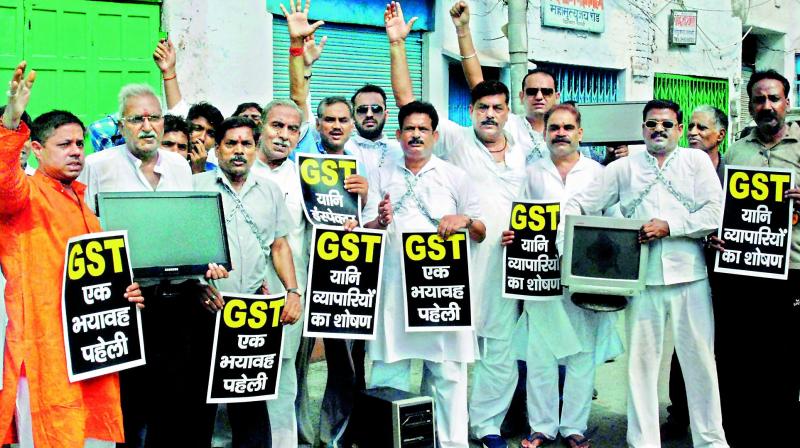GST took 17 years to see light; much more complex than other countries
Indian GST has six rates of taxation - 0, 3%, 5%, 12%, 18%, 28% and 28% plus cess.

New Delhi: In a historic move, India rolled out the goods and services tax (GST) on Friday midnight. This came after 17 years of gruelling negotiations between political parties and intense haggling by states and industry.
However, the Indian GST is far from perfect and much more complex than what other countries have adopted. Most of the countries have a single rate GST. In contrast, the Indian GST has six rates of taxation - 0, 3%, 5%, 12%, 18%, 28% and 28% plus cess.
Moreover, in India both the Centre and states will collect GST unlike other countries where this power is vested in a single authority.
Anyway, a third of items, including high revenue-generating petrol, diesel, natural gas and electricity, are outside the GST ambit. Industries that use these products as inputs will not be able to claim credit.
Liquor, too, has been excluded from GST. Real estate has been brought under the new tax regime only partially.
Sale of property will continue to attract stamp duty as before. Revenue secretary Hasmukh Adhia summed up the government’s dilemma over GST when he recently said: “We will prefer to have a single GST rate but after some time. That should be the ultimate goal.
However, it looks unlikely that states will agree on bringing excluded items under GST anytime soon given that the target remains elusive even after 17 years of negotiations.”
Experts say that compliance with the GST would be costly and tedious because of its complexity. Small businesses with limited computer literacy, erratic power supply and poor net connectivity could find themselves struggling for survival under the new tax regime, experts have cautioned.
The government’s claim that the the new tax regime will help curb tax evasion is more myth than reality, say experts.
Business with less than Rs 20 lakh annual turnover are exempted from GST, a provision that experts fear can be misused by businesses to create dummy small companies for enjoying tax exemption benefits.

